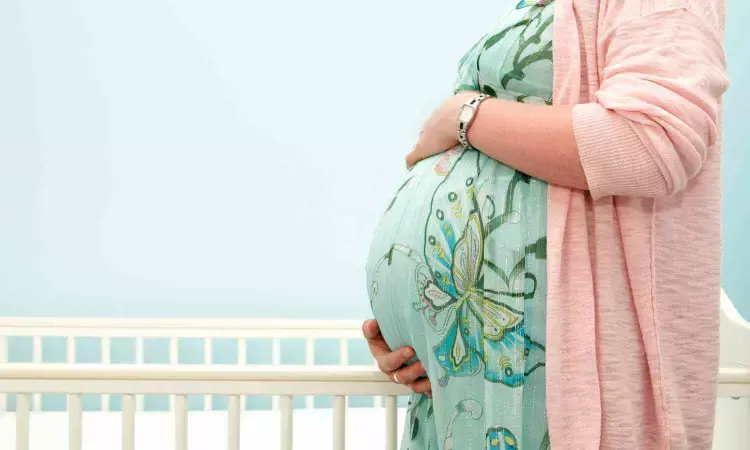- Home
- Medical news & Guidelines
- Anesthesiology
- Cardiology and CTVS
- Critical Care
- Dentistry
- Dermatology
- Diabetes and Endocrinology
- ENT
- Gastroenterology
- Medicine
- Nephrology
- Neurology
- Obstretics-Gynaecology
- Oncology
- Ophthalmology
- Orthopaedics
- Pediatrics-Neonatology
- Psychiatry
- Pulmonology
- Radiology
- Surgery
- Urology
- Laboratory Medicine
- Diet
- Nursing
- Paramedical
- Physiotherapy
- Health news
- Fact Check
- Bone Health Fact Check
- Brain Health Fact Check
- Cancer Related Fact Check
- Child Care Fact Check
- Dental and oral health fact check
- Diabetes and metabolic health fact check
- Diet and Nutrition Fact Check
- Eye and ENT Care Fact Check
- Fitness fact check
- Gut health fact check
- Heart health fact check
- Kidney health fact check
- Medical education fact check
- Men's health fact check
- Respiratory fact check
- Skin and hair care fact check
- Vaccine and Immunization fact check
- Women's health fact check
- AYUSH
- State News
- Andaman and Nicobar Islands
- Andhra Pradesh
- Arunachal Pradesh
- Assam
- Bihar
- Chandigarh
- Chattisgarh
- Dadra and Nagar Haveli
- Daman and Diu
- Delhi
- Goa
- Gujarat
- Haryana
- Himachal Pradesh
- Jammu & Kashmir
- Jharkhand
- Karnataka
- Kerala
- Ladakh
- Lakshadweep
- Madhya Pradesh
- Maharashtra
- Manipur
- Meghalaya
- Mizoram
- Nagaland
- Odisha
- Puducherry
- Punjab
- Rajasthan
- Sikkim
- Tamil Nadu
- Telangana
- Tripura
- Uttar Pradesh
- Uttrakhand
- West Bengal
- Medical Education
- Industry
Maternal Biomass Exposure: Smaller Newborns with Possible Brain-Sparing Benefits, Study finds

Bangladesh: Recent research has uncovered significant impacts of maternal exposure to biomass cooking fuels on newborns' birth size and body proportionality. A study published in Scientific Reports revealed that pregnant women using traditional biomass fuels, such as wood or coal, may be at higher risk of symmetric small for gestational age (SGA) with some brain-sparing effect.
The study was conducted to assess the impact of cooking fuel on fetal growth and development, including length, weight, and head circumference at birth. The research revealed that a significant majority, 79.3%, of women used biomass fuel as their primary cooking energy source.
"These findings align with previous research indicating that over 80% of households in developing countries rely on biofuels for cooking and heating. Overall, the study suggests that the type of fuel used during pregnancy can significantly affect fetal development and birth outcomes," the researchers reported.
Biomass cooking fuels are commonly used in many developing regions due to their low cost and availability. However, exposure to the smoke and particulate matter produced by these fuels has long been associated with various health risks, both for the mothers and their unborn children.
The effect of maternal exposure to biomass fuel on infant anthropometry and body proportionality at birth—key indicators of survival, physical growth, and neurodevelopment—remains uncertain. Therefore, S. M. Tafsir Hasan, International Centre for Diarrhoeal Disease Research, Bangladesh, Dhaka, Bangladesh, and colleagues seek to explore the association between household-level exposure to biomass cooking fuels and infant size and body proportionality at birth among women in rural Bangladesh.
For this purpose, the researchers included 909 women from the Pregnancy Weight Gain study conducted in Matlab, a rural area of Bangladesh. The study examined various birth outcomes, including infants' weight (in grams), length (in centimeters), head circumference (in centimeters), and the rates of small for gestational age (SGA), short for gestational age (SGAL), low head circumference for gestational age (SGAHC). Additionally, the researchers assessed the ponderal index and cephalization index at birth.
The study revealed the following findings:
- Of the women, 79.3% were dependent on biomass fuel.
- Compared to infants born to mothers who used gas for cooking, those born to biomass users had lower weight (β − 94.3), length (β − 0.36), head circumference (β − 0.24), and higher cephalization index (β 0.03) at birth.
This study highlighted the significance of advancing several Sustainable Development Goals (SDGs): SDG 3 (Good Health and Well-being), SDG 7 (Affordable and Clean Energy), and SDG 11 (Sustainable Cities and Communities). It suggests that improving access to clean household energy could mitigate adverse impacts on maternal and child health. Given these findings, it is crucial to consider their implications for promoting sustainability and environmental stewardship.
"We advocate for further research to investigate the impact of various fuel sources on maternal and fetal health, which will help us make informed decisions that balance environmental sustainability with the health and well-being of mothers and their unborn children," the researchers concluded.
Reference:
Nyma, Z., Hasan, S. M., Saqeeb, K. N., Khan, M. A., & Ahmed, T. (2024). Effects of maternal exposure to biomass cooking fuel on birth size and body proportionality in full-term infants born by vaginal delivery. Scientific Reports, 14(1), 1-10. https://doi.org/10.1038/s41598-024-68821-w
Dr Kamal Kant Kohli-MBBS, DTCD- a chest specialist with more than 30 years of practice and a flair for writing clinical articles, Dr Kamal Kant Kohli joined Medical Dialogues as a Chief Editor of Medical News. Besides writing articles, as an editor, he proofreads and verifies all the medical content published on Medical Dialogues including those coming from journals, studies,medical conferences,guidelines etc. Email: drkohli@medicaldialogues.in. Contact no. 011-43720751


